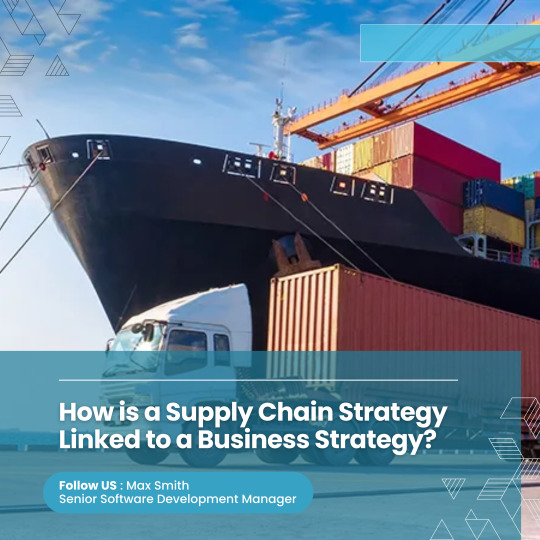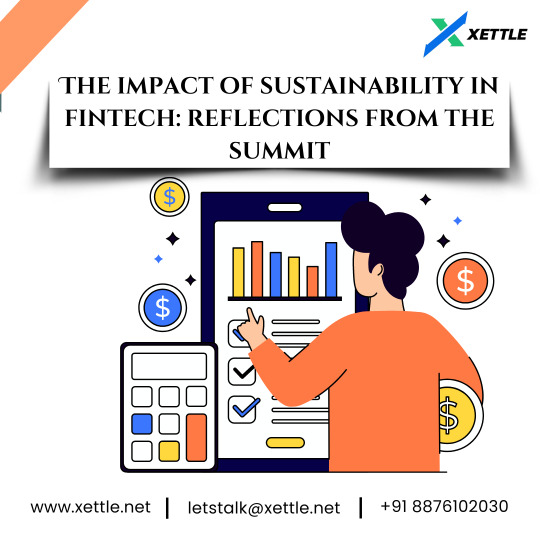#ESG data and solutions
Explore tagged Tumblr posts
Text
The Ultimate Guide to ESG Investing: Strategies and Benefits
Socio-economic and environmental challenges can disrupt ecological, social, legal, and financial balance. Consequently, investors are increasingly adopting ESG investing strategies to enhance portfolio management and stock selection with a focus on sustainability. This guide delves into the key ESG investing strategies and their advantages for stakeholders.
What is ESG Investing?
ESG investing involves evaluating a company's environmental, social, and governance practices as part of due diligence. This approach helps investors gauge a company's alignment with humanitarian and sustainable development goals. Given the complex nature of various regional frameworks, enterprises and investors rely on ESG data and solutions to facilitate compliance auditing through advanced, scalable technologies.
Detailed ESG reports empower fund managers, financial advisors, government officials, institutions, and business leaders to benchmark and enhance a company's sustainability performance. Frameworks like the Global Reporting Initiative (GRI) utilize globally recognized criteria for this purpose.
However, ESG scoring methods, statistical techniques, and reporting formats vary significantly across consultants. Some use interactive graphical interfaces for company screening, while others produce detailed reports compatible with various data analysis and visualization tools.
ESG Investing and Compliance Strategies for Stakeholders
ESG Strategies for Investors
Investors should leverage the best tools and compliance monitoring systems to identify potentially unethical or socially harmful corporate activities. They can develop customized reporting views to avoid problematic companies and prioritize those that excel in ESG investing.
High-net-worth individuals (HNWIs) often invest in sustainability-focused exchange-traded funds that exclude sectors like weapon manufacturing, petroleum, and controversial industries. Others may perform peer analysis and benchmarking to compare businesses and verify their ESG ratings.
Today, investors fund initiatives in renewable energy, inclusive education, circular economy practices, and low-carbon businesses. With the rise of ESG databases and compliance auditing methods, optimizing ESG investing strategies has become more manageable.
Business Improvement Strategies
Companies aiming to attract ESG-centric investment should adopt strategies that enhance their sustainability compliance. Tracking ESG ratings with various technologies, participating in corporate social responsibility campaigns, and improving social impact through local development projects are vital steps.
Additional strategies include reducing resource consumption, using recyclable packaging, fostering a diverse workplace, and implementing robust cybersecurity measures to protect consumer data.
Encouraging ESG Adoption through Government Actions
Governments play a crucial role in educating investors and businesses about sustainability compliance based on international ESG frameworks. Balancing regional needs with long-term sustainability goals is essential for addressing multi-stakeholder interests.
For instance, while agriculture is vital for trade and food security, it can contribute to greenhouse gas emissions and resource consumption. Governments should promote green technologies to mitigate carbon risks and ensure efficient resource use.
Regulators can use ESG data and insights to offer tax incentives to compliant businesses and address discrepancies between sustainable development frameworks and regulations. These strategies can help attract foreign investments by highlighting the advantages of ESG-compliant companies.
Benefits of ESG Investing Strategies
Enhancing Supply Chain Resilience
The lack of standardization and governance can expose supply chains to various risks. ESG strategies help businesses and investors identify and address these challenges. Governance metrics in ESG audits can reveal unethical practices or high emissions among suppliers.
By utilizing ESG reports, organizations can choose more responsible suppliers, thereby enhancing supply chain resilience and finding sustainable companies with strong compliance records.
Increasing Stakeholder Trust in the Brand
Consumers and impact investors prefer companies that prioritize eco-friendly practices and inclusivity. Aligning operational standards with these expectations can boost brand awareness and trust.
Investors should guide companies in developing ESG-focused business intelligence and using valid sustainability metrics in marketing materials. This approach simplifies ESG reporting and ensures compliance with regulatory standards.
Optimizing Operations and Resource Planning
Unsafe or discriminatory workplaces can deter talented professionals. A company's social metrics are crucial for ESG investing enthusiasts who value a responsible work environment.
Integrating green technologies and maintaining strong governance practices improve operational efficiency, resource management, and overall profitability.
Conclusion
Global brands face increased scrutiny due to unethical practices, poor workplace conditions, and negative environmental impacts. However, investors can steer companies towards appreciating the benefits of ESG principles, strategies, and sustainability audits to future-proof their operations.
As the global focus shifts towards responsible consumption, production, and growth, ESG investing will continue to gain traction and drive positive change.
5 notes
·
View notes
Text
Make ESG Reporting Easy with ElsAi
Optisol's ESG Data Solutions streamline the process of ESG data collection, validation, and reporting through automation and AI. Their platform, elsAi, simplifies the extraction of ESG-related data, ensuring accuracy and efficiency in managing vast, fragmented datasets. The solution enhances emissions tracking, integrates with existing systems like Life Cycle Assessments, and automates compliance with sustainability regulations. By using advanced analytics, elsAi generates actionable insights, improves stakeholder engagement, and supports long-term sustainability strategies. With an intuitive API, the platform ensures businesses can meet their ESG goals with minimal effort and cost.
1 note
·
View note
Text
Gethsemane Enertech ERP Solution: Revolutionizing Energy Efficiency through AI, IoT & Data Science
Overview of Energy Efficiency in Ghana and Africa Energy efficiency is increasingly becoming a focal point in the energy sector, particularly in developing regions like Ghana and Africa, where energy demand is growing rapidly due to economic expansion and population growth. In these regions, energy efficiency is not just about reducing costs but also about enhancing energy security, reducing…

View On WordPress
#AI#ESG#IoT#ACEP#Africa#Climate Change#Coronavirus#Data Science#Energy Efficiency#Future of energy Conference 2024#Gethsemane Enertech ERP Solution#Ghana#GodRules#Green finance#Impact Investing#ImpactofCovid19#LoveofGod#Oil and gas#Teamwork
0 notes
Text
#ProxyVoting#ESG#SustainableInvesting#ActiveOwnership#ShareholderEngagement#CorporateGovernance#ResponsibleInvesting#Sustainability#InvestorRights#ESGStrategies#EthicalInvesting#ESGServices#Inrate#VotingRights#ESGIntegration#impactbeyondesg#business#data#finance#solutions#bollywoodedit#nature
0 notes
Text
Unlocking the Value of ESG Data: How Analytics Drives Responsible Investing
The importance of environmental, social, and governance data cannot be underscored in the present dynamic industry. Eco-friendly, societal, and management concerns are becoming the focus. The era of evaluating achievement solely through the fiscal soundness of a company is a thing of the past. Increasingly individuals are being mindful of the effect of businesses on nature and the world. Also, people focused on the way companies treat their personnel and how they oversee their conduct ethically.
The rise of Environmental, Social, and Governance data as a beneficial source has empowered organizations to enhance their ability to observe, communicate, and enhance their accountable and green activities. Consequently, companies now have the capacity to make decisions with greater information and implement strategies that support environmentally friendly approaches.
ESG Data has developed into a guide that shows the path for modern companies to enhance resilience, intention-driven, and inclusiveness. This clarifies the reason it has turned into a key ingredient in the business world in the contemporary era.
The elements of ESG in business processes can be improved in comprehension through the use of ESG data. In this manner, the sustainability of a company, ethical business practices, and the generation of sustainable value might be judged by stockholders, involved parties, and ESG assessment agencies. Nevertheless, it's crucial to observe that such assessments might differ based on the particular standards and methods implemented by all involved.
Investors can improve their decision-making, mitigate risk, and locate firms that have similar values and devotion to sustainability. If they consider ESG data in mind, it has the potential to assist them in accomplishing the desired objectives. Consequently, it is expected that numerous financial institutions are pulling funds from corporations that neglect ESG guidelines.

Importance of ESG Data in Responsible Investing
ESG functions as a valuation technique that takes into account environmental, social, and governance issues. An ESG assessment identifies a company's risks and practices based on environmental, social, and governance criteria.
As a result of ESG frameworks, sustainable investing can help individuals or organizations determine whether a company's values are aligned with their own and analyze the ultimate worth of companies.
Over the past two years, several governmental bodies have enacted new laws requiring corporations to report ESG metrics, and many countries have updated their environmental and social disclosure regulations.
Companies are thus facing pressure from investors to enhance their transparency and performance on the ESG data and analytics front. Yet, most businesses are not able to meet these requirements. They do not have automated solutions for across-the-board compliance tracking and management.
Understanding ESG Analytics and Its Impact on Investment Decisions

Ecological factors, as part of ESG analysis, examine the impact of a company has an effect on the surroundings. The foundation examines the carbon footprint, waste minimization, and control, which involve sustainability policies and actions. The influence of the company on the public is the theme of social examination. The examination includes evaluating the firm's workforce policies and processes. Moreover, it encompasses assessing its human rights performance, public relations, and initiatives promoting diversity and inclusion.
An analysis of the company's governance reviews the company's administration and the processes of making decisions. This consists of operational visibility, the performance of its board of directors, and broader corporate culture. This element of Environmental, Social, and Governance analysis is essential for examining the business's prosperity in the long run and steadiness.
Investors utilize Environmental, Social, and Governance analysis to find businesses that uphold sustainability and responsible business practices. Such an examination can help investors in making better-informed investment picks. This can additionally assist individuals in aligning their belongings according to their principles and pursuits. Environmental, social, and governance analysis can also assist companies to spot areas for improvement and keep tabs on their development.
Sustainability analysis has become more significant in recent years as stakeholders have become more concerned about the corporate influence on society and the environment. Consequently, organizations are currently dealing with more intense stress to provide transparency on their ESG initiatives and showcase their dedication to sustainable practices. Consequently, numerous companies started to consider environmental, social, and governance analysis seriously. The company is adopting measures and frameworks to boost its ESG outcomes.
Environmental, Social, and Governance analysis presents a thorough and diverse approach to analyzing a company’s effect on the ecological system, the community, and its interested parties. This offers a complete understanding of a company's sustainability initiatives and assists investors in making informed selections.

Sustainable investment analysis will become more and more important for financial backers, corporations, and related individuals as the relevance of sustainable practices and business ethics develops. With the global gains of a deeper understanding regarding the ecological and societal effects within the corporate sector, the call for it will grow for openness and responsibility.
The Role of Advanced Analytics in ESG Investing Strategies
Sustainable investing has earned significant interest lately among investors, customers, and regulators, growing more concerned regarding the social and environmental effects of corporations. Sustainable investment analysis carefully evaluates the influence of a company among different stakeholders, taking into account the natural surroundings, local communities, and investors.
A major advantage of environmental, social, and governance analysis allows investors to create well-informed investment determinations. Traders can gain a deeper understanding of potential hazards and chances of an individual investment by giving thought to the ESG performance of a corporation. These can offer valuable perspectives regarding the company's ESG practices, supporting investors in making well-informed determinations. As an illustration, organizations with robust ESG practices are frequently regarded as having lower risk and could potentially provide greater long-term investment returns.

Moreover, there is a possibility that it also entices more socially responsible potential investors. Yet another crucial advantage of environmental, social, and governance research is that it fosters company ethics and sustainable practices. Through concentration on the influence an organization possesses within the community as well as the surroundings, Environmental, Social, and Governance research assists organizations in recognising prospects for advancement. Additionally, it allows them to exert themselves to resolve these matters. Thus, it contributes to an environmentally friendly future and guarantees that businesses conduct themselves morally and with responsibility.
Sustainable investing additionally aids businesses in overseeing perception risk. For instance, organizations that are identified as having social and environmental responsibility maintain a strong image. These can result in greater brand retention of loyal customers and satisfaction and overall achievement in the industry. In conclusion, Sustainability analysis has the potential to assist businesses in improving the extent of honesty and social consciousness.
By offering investors and interested parties a comprehensive view of the ESG performance of a company, ESG assessment boosts the trust of the corporate world that the firm is functioning towards the greatest advantages of each interested party. Ultimately, this causes enhanced decision-making and business practices that are environmentally friendly.
Also Read - Driving Sustainable Innovations: AI for ESG Data Challenges.
Conclusion
ESG data has become an essential tool in the modern economy. It enables companies to measure their sustainability efforts, manage risks and meet stakeholder expectations. The importance of ESG data lies in its ability to drive responsible business practices, improve decision-making and drive long-term value creation.
However, the lack of standardized ESG data remains a major challenge that needs to be addressed to ensure accurate and comparable valuations. As ESG reporting frameworks evolve and regulatory initiatives such as the CSRD gain more attention, the future will see more consistent, transparent, and credible reporting that promotes a sustainable and responsible corporate environment. High ESG data is promised.

Building a Greener and Sustainable Future
Before 2023, accountability was seen as pleasant, but that's starting to change. The epidemic refocused attention on sustainability and clean energy. Sustainability, previously an overarching issue, is now a key focus for every company. This presents a unique chance for businesses to evaluate their current state and consider how they could reduce their carbon footprint in the near and far future.
There is an increasing effort by companies of all kinds to combat the effects of climate change. They no longer include it in the brand's mission statement, but it has become a unifying notion that drives them to carry out essential tasks.
Companies are developing brand-new, long-term plans. They are working to lessen their environmental impact by using cutting-edge machinery. This allows them to protect their worker's interests while maintaining open communication. By 2023, brands that must put sustainability first will have already lost the race.
With a presence in New York, San Francisco, Austin, Seattle, Toronto, London, Zurich, Pune, Bengaluru, and Hyderabad, SG Analytics, a pioneer in Research and Analytics, offers tailor-made services to enterprises worldwide.
SG Analytics (SGA), an industry leader in ESG data solutions, serves the world's largest rating agencies, data platforms, and capital market players. We are highly skilled in managing data across a wide range of ESG frameworks, standards, and themes. Our tailored ESG data solutions include ESG aggregation, cleaning, and validation across 1,500+ ESG indicators from various sources, assisting in developing insightful information that facilitates well-informed decision-making.
Furthermore, At SGA, we specialize in providing organizations with the tools and insights needed to navigate the complex landscape of sustainable and responsible business practices. Our ESG analytics services offer a deep understanding of ESG factors and their impact on business performance. With advanced analytics techniques and industry-specific expertise, we transform raw ESG data into actionable insights that drive informed decision-making.
0 notes
Text

The Evolution of 'Data-First’ Strategy: What does that mean for Businesses?
Today, data is more pervasive than ever. However, taking advantage of its full potential mandates creativity and conviction. Data leaders are now navigating through an ever-growing pool of internal and external data sources to curate strategy and direction in this increasingly data-rich marketplace.
0 notes
Text
Learn how ESG Analytics transforms sustainable investment and enables investors to make wise choices. Learn how to evaluate a company's impact using environmental, social, and governance (ESG) aspects, and gain practical knowledge on gathering, combining, and analyzing data. Read this insightful article to learn more about ESG analytics and its function in promoting change.
#ESG Analytics#ESG Data Analytics#ESG Data Analysis#ESG Data and Analytics#ESG Analytics Company#ESG Analytics Services#ESG Analytics Solutions
1 note
·
View note
Text
Transform Your Tomorrow with Zylentrix: Sustainable Innovation for Businesses, Careers, and Global Growth
🌐 Zylentrix: Redefining Success Through People-Centric Solutions
At Zylentrix, we’re on a mission to empower individuals, businesses, and communities through innovation, integrity, and sustainability. Our vision? To lead the world in integrated consultancy services, transforming challenges into stepping stones for growth. Whether you’re scaling a business, launching a career, or pursuing education, we’re here to equip you with the tools to thrive. Let’s unpack how our mission, values, and culture make us the partner you can trust.
🎯 Our Mission & Vision: The North Star of Zylentrix
Mission: “To empower individuals, businesses, and communities by delivering innovative and customised solutions across education, technology, recruitment, and business consulting. With a commitment to excellence, integrity, and sustainability, we strive to create opportunities, bridge gaps, drive transformation, and foster long-term success.”
Vision: “To be the global leader in integrated consultancy services, transforming lives and businesses through innovative, sustainable, and forward-thinking solutions that empower individuals, businesses, and communities to thrive and succeed.”
We’re not just consultants—we’re architects of progress, designing futures where everyone has the chance to excel.
💎 Core Values: The Pillars of Everything We Do
Our values are the blueprint for how we serve clients, collaborate with partners, and grow as a team:
Integrity: “Building Trust Through Transparency” Every decision is guided by ethics. No shortcuts, no compromises.
Innovation: “Driving Future-Ready Solutions” From AI-driven recruitment tools to sustainable business frameworks, we pioneer what’s next.
Excellence: “Delivering Impact & Measurable Growth” We set—and smash—high standards, ensuring clients see real results.
Customer-Centricity: “Putting Clients at the Centre of Everything” Your goals shape our strategies. We listen, adapt, and deliver.
Diversity, Inclusion & Collaboration: “Creating Equal Opportunities for All” Diverse teams = smarter solutions. We champion equity in every project.
Sustainability: “Responsible Business for a Better Future” Green tech, eco-friendly practices, and ethical growth are non-negotiables.
Empowerment: “Enabling People & Businesses to Thrive” We don’t just hand you tools—we teach you how to master them.
🤝 Our Commitment: Tailored Support for Every Journey
Zylentrix is your partner in growth, no matter your starting point:
For Businesses:
Tech Solutions: Streamline operations with scalable AI, cybersecurity, and cloud systems.
Strategic Recruitment: Access global talent pools curated for cultural and technical fit.
Consulting Excellence: Turn insights into action with market research and digital transformation plans.
For Job Seekers:
Career Mastery: Revamp resumes, ace interviews, and unlock roles in booming industries like fintech and clean energy.
Global Mobility: Navigate international job markets with visa support and relocation guidance.
For Students:
Education Pathways: Secure admissions and scholarships at top universities worldwide.
Future-Proof Skills: Gain certifications in AI, sustainability, and more through our partnerships.
For Startups & SMEs:
Scale Smart: Leverage data analytics and ESG frameworks to grow responsibly.
Funding Ready: Craft investor pitches that stand out in crowded markets.
🌱 Our Culture: Fueling Innovation from Within
At Zylentrix, our workplace is a launchpad for creativity and collaboration. Here’s what defines us:
Lifelong Learning: Monthly workshops, innovation challenges, and tuition reimbursements keep our team ahead of trends.
Agility in Action: When the world changes, we pivot faster—like shifting to virtual career fairs during the pandemic.
Collaborative Spirit: Cross-departmental “sprint teams” solve client challenges, blending tech experts, educators, and recruiters.
Ownership & Impact: Every employee, from interns to executives, contributes to client success stories.
Work-Life Harmony: Flexible hours, mental health resources, and sustainability days ensure our team thrives inside and out.
Join the Zylentrix Movement
Ready to transform your business, career, or community? Let’s build a future where innovation and integrity go hand in hand.
📩 Connect Today 👉 Explore our services: Zylentrix 👉 Follow us on Social Media for tips on tech, careers, and sustainability. LinkedIn Facebook Instagram TikTok X Pinterest YouTube Quora Medium 👉 Email [email protected] to schedule a free consultation.

27 notes
·
View notes
Text
How is a supply chain strategy linked to a business strategy?
In today’s competitive and unpredictable global market, the integration of supply chain strategy with business strategy is not optional—it is essential. Supply chain management (SCM) is no longer a back-office function but a core component in driving business growth, profitability, and operational efficiency. Companies that align their supply chain targets with their primary business objectives tend to perform better in terms of consumer satisfaction and financial performance than other organizations.

1. Cutting Costs and Improving Efficiency
A strategic supply chain approach identifies cost-saving opportunities without compromising speed or quality. According to McKinsey, aligning supply chain and business goals can reduce costs by up to 15% and boost service levels by 20%.
When the supply chain management supports business goals, it becomes easier to identify cost-saving opportunities without sacrificing quality or speed.
2. Improving Customer Experience
Many companies focus on customer satisfaction when creating their business strategies. When a supply chain management strategy is well-integrated, it guarantees goods are delivered on schedule, are always available and meets customer needs.
According to Gartner, an overwhelming portion of supply chain leaders say connecting their strategy to customer experience is vital for growing revenue. Proper SCM leads to faster order satisfaction and visibility of numbers in stock which boosts customer loyalty.
3. Reducing Risk and Ensuring Continuity
Supply chain management disruptions can damage both reputation and revenue. Embedding supply chain strategy into enterprise risk planning improves resilience and allows faster, data-informed responses to disruptions
During the COVID-19 crisis, companies with flexible supply chains were 2.5 times more likely to avoid significant disruptions, according to a report by Deloitte. An innovative supply chain strategy includes backup suppliers, real-time data, and clear recovery plans—all of which support overall business stability.
4. Supporting Sustainability and Compliance
Many companies now set goals around sustainability and ESG (Environmental, Social, and Governance) performance. Supply chain management plays an important role here.
EY found that 61% of businesses now assess the sustainability of their suppliers. A supply chain strategy that supports ESG goals enables companies to meet regulations, reduce emissions, and foster trust with stakeholders. It also opens doors to new customers who value responsible business practices.
5. Enabling Growth and Expansion
Growth and market expansion demand a scalable, agile supply chain that can meet increased demand, navigate local regulations, and accelerate go-to-market timelines.
If the supply chain is not aligned, delays and rising costs can quickly hold back growth. On the other hand, a flexible supply chain management strategy enables faster product launches and confident entry into new regions.
Key Supply Chain Management Providers
A lot of organizations depend on third-party supply chain management companies for well-rounded strategies, advanced data analysis, and comprehensive logistics support. Enterprises such as Suma Soft, DHL Supply Chain, Ryder System Inc., XPO Logistics and Geodis are focused on connecting logistics functions to the bigger aims of a business. Using third-party logistics companies to help with transportation, warehousing, and last-mile solutions allows businesses to achieve their key targets.
A strong business strategy depends on an equally strong supply chain strategy. Whether the goal is reducing costs, improving service, managing risks, or supporting sustainability, the supply chain plays a vital role.
Companies that align both strategies experience faster growth, improved performance, and higher customer satisfaction—giving them a clear competitive edge in today's market.
2 notes
·
View notes
Text
The Future of Commercial Loan Brokering: Trends to Watch!
The commercial loan brokering industry is evolving rapidly, driven by technological advancements, changing market dynamics, and shifting borrower expectations. As businesses continue to seek financing solutions, brokers must stay ahead of emerging trends to remain competitive. Here are some key developments shaping the future of commercial loan brokering:
1. Rise of AI and Automation
Artificial intelligence (AI) and automation are revolutionizing loan processing. From AI-driven underwriting to automated document verification, these technologies are streamlining workflows, reducing manual effort, and speeding up loan approvals. Brokers who leverage AI-powered tools can offer faster and more efficient services.
2. Alternative Lending is Gaining Momentum
Traditional banks are no longer the only players in commercial lending. Alternative lenders, including fintech platforms and private lenders, are expanding options for businesses that may not qualify for conventional loans. As a result, brokers must build relationships with non-bank lenders to provide flexible financing solutions.
3. Data-Driven Decision Making
Big data and analytics are transforming how loans are assessed and approved. Lenders are increasingly using alternative data sources, such as cash flow analysis and digital transaction history, to evaluate creditworthiness. Brokers who understand and utilize data-driven insights can better match clients with the right lenders.
4. Regulatory Changes and Compliance Requirements
The commercial lending landscape is subject to evolving regulations. Compliance with federal and state laws is becoming more complex, requiring brokers to stay updated on industry guidelines. Implementing compliance-friendly processes will be essential for long-term success.
5. Digital Marketplaces and Online Lending Platforms
Online lending marketplaces are making it easier for businesses to compare loan offers from multiple lenders. These platforms provide transparency, efficiency, and better loan matching. Brokers who integrate digital platforms into their services can enhance customer experience and expand their reach.
6. Relationship-Based Lending Still Matters
Despite digital advancements, relationship-based lending remains crucial. Many businesses still prefer working with brokers who offer personalized service, industry expertise, and lender connections. Building trust and maintaining strong relationships with both clients and lenders will continue to be a key differentiator.
7. Increased Focus on ESG (Environmental, Social, and Governance) Lending
Sustainability-focused lending is gaining traction, with more lenders prioritizing ESG factors in their financing decisions. Brokers who understand green financing and social impact lending can tap into a growing market of businesses seeking sustainable funding options.
Final Thoughts
The commercial loan brokering industry is undergoing a transformation, with technology, alternative lending, and regulatory changes shaping the future. Brokers who embrace innovation, stay informed on market trends, and continue building strong relationships will thrive in this evolving landscape.
Are you a commercial loan broker? What trends are you seeing in the industry? Share your thoughts in the comments below!

#CommercialLoanBroker#BusinessFinancing#LoanBrokerTrends#AlternativeLending#Fintech#SmallBusinessLoans#AIinLending#DigitalLending#ESGLending#BusinessGrowth#LoanBrokerage#FinanceTrends#CommercialLending#BusinessFunding#FinancingSolutions#4o
3 notes
·
View notes
Text
The Comprehensive Guide to Ethical ESG Investing: Key Strategies and Advantages
In today's world, socio-economic challenges and environmental issues pose significant risks to global stability. Ethical investors, recognizing the importance of sustainability, are increasingly adopting ESG (Environmental, Social, Governance) strategies to optimize portfolio management and make informed decisions. This article delves into the core strategies and benefits of ESG investing that every stakeholder should know.
Understanding ESG Investing
ESG investing refers to the practice of evaluating a company’s adherence to environmental, social, and governance standards during the investment process. This approach enables investors to assess a company's commitment to sustainable development and ethical practices. Given the complexity of regional regulations, both enterprises and investors utilize ESG data and solutions to streamline compliance audits and enhance reporting accuracy.
Comprehensive ESG reports serve as invaluable tools for fund managers, financial advisors, government officials, and business leaders, allowing them to benchmark and improve sustainability practices. Global frameworks, such as the Global Reporting Initiative (GRI), provide standardized criteria, although the methods and reporting formats may vary significantly among consultants.
For instance, certain ESG scoring systems employ interactive dashboards for company evaluations, while others generate detailed reports that integrate seamlessly with data analysis tools. These variations highlight the need for customized ESG solutions tailored to specific investment and compliance requirements.
ESG Compliance and Ethical Investing Strategies
1| Strategies for Ethical Investors
To ensure ethical investing, investors must leverage advanced tools and compliance databases to identify companies engaged in unethical or socially harmful activities. By customizing their reporting views, investors can avoid problematic enterprises and prioritize those that align with ESG principles.
High net-worth individuals (HNWI) often invest in ESG-focused exchange-traded funds (ETFs), which exclude industries like weapons manufacturing, fossil fuels, and controversial sectors. Peer analysis and benchmarking further enable investors to compare businesses and validate their ESG ratings.
In recent years, there has been a surge in investments in renewable energy, inclusive education, circular economy initiatives, and low-carbon businesses. The increasing availability of ESG databases and compliance auditing methods has made it easier for investors to refine their ESG strategies and make informed decisions.
2| ESG Strategies for Business Improvement
For businesses, adopting ESG-centric strategies is crucial for attracting investors who value sustainability. Companies must monitor their ESG ratings using a combination of free and paid tools to stay ahead of compliance opportunities and address potential risks.
To enhance their social impact, businesses can launch corporate social responsibility (CSR) initiatives, such as improving local infrastructure in underdeveloped areas. Other strategies include reducing resource consumption, adopting eco-friendly packaging, and fostering a diverse workplace culture. Additionally, integrating robust cybersecurity measures is essential to safeguard consumer privacy and ensure digital governance.
3| Governmental Role in Promoting ESG Adoption
Governments play a critical role in encouraging ESG adoption by educating investors and businesses on sustainability compliance based on international frameworks. Balancing regional needs with long-term sustainability goals is key to ensuring that multi-stakeholder interests are met.
Take agriculture, for example. While vital for trade, agriculture also poses environmental challenges, such as greenhouse gas emissions and water consumption. Governments can guide stakeholders toward green technologies that reduce carbon risks and optimize resource use.
By leveraging ESG data and insights, regulators can offer tax incentives to businesses that comply with sustainability standards. Addressing inconsistencies between current regulations and emerging frameworks will help governments attract foreign direct investment and promote sustainable growth.
Benefits of ESG Investing Strategies
1| Strengthening Supply Chain Resilience
A lack of standardized governance exposes supply chains to various risks. By adopting ESG strategies, businesses can forecast and mitigate these challenges. Governance metrics in ESG audits, for example, help identify suppliers engaging in unethical practices or contributing to environmental harm.
Armed with ESG reports, organizations can seek out responsible suppliers, thereby enhancing their resilience to supply chain disruptions. This approach also allows investors to identify sustainable companies with strong compliance initiatives. Suppliers that fail to meet ESG standards risk damaging their clients’ credibility and losing investor trust.
2| Enhancing Stakeholder Confidence
Consumers increasingly demand eco-friendly products, while impact investors prioritize companies committed to inclusivity and integrity. Aligning a company's operations with these expectations is essential for building brand trust and recognition.
Investors can encourage businesses to develop ESG-focused intelligence, which can be used to craft marketing materials that resonate with stakeholder values. Moreover, the integration of ESG principles into financial disclosures simplifies investor communications and strengthens relationships with stakeholders.
3| Optimizing Operations and Resource Management
Toxic workplaces that foster discrimination or political instability can drive away top talent. Therefore, social metrics are critical to ESG investors who believe that responsible businesses are more likely to maintain a productive and creative workforce.
Green technologies further enhance operational efficiency by optimizing resource use, while strong governance frameworks prevent inconsistencies in documentation and audits. These ESG strategies ultimately contribute to a company’s profitability and long-term value.
Conclusion
As global brands face increased scrutiny for questionable practices and environmental impacts, ESG investing offers a pathway to futureproofing businesses. By embracing ethical investing strategies and sustainability audits, companies can improve stakeholder relationships and secure their place in a rapidly evolving market.
With the world moving toward more responsible consumption and production, the importance of ESG investing and ethical business practices will only continue to grow.
1 note
·
View note
Text

Green and Eco-Friendly Blasting Media: Current Development, Trends, and Future Challenges
——An In-Depth Industry Analysis for Manufacturing Managers and Environmental Engineers
Introduction: The Revolution of Blasting Technology in the Era of Environmental Transformation
As global environmental regulations tighten (e.g., EU REACH, U.S. EPA standards) and the ESG (Environmental, Social, Governance) concept gains traction, the manufacturing industry is increasingly demanding sustainable surface treatment technologies. Traditional blasting media, such as silica sand and steel grit, are under scrutiny due to dust pollution, high energy consumption, and health risks. In contrast, green and eco-friendly blasting media are emerging as a core breakthrough for industry transformation. This article combines the latest market data and technological trends to analyze the current development and future challenges in this field, providing strategic insights for decision-makers.
I. Market Status: Policy-Driven Growth and Technological Advancements
1. Market Size and Growth Potential
According to Grand View Research, the global blasting media market reached $5.2 billion in 2023, with the share of eco-friendly media rising from 12% in 2018 to 28% in 2023, achieving a compound annual growth rate (CAGR) of 9.7%. By 2030, the market share of green media is expected to exceed 45%, with the Asia-Pacific region (especially China and India) becoming a growth engine due to manufacturing upgrade demands.
2. Mainstream Eco-Friendly Media Types
Plant-Based Materials (walnut shells, corn cobs): Biodegradable, low dust emission (70% less than silica sand), suitable for precision parts.
Synthetic Ceramic Particles (alumina, silicon carbide): High hardness, reusable 5-8 times, reducing long-term costs.
Ice/Dry Ice: Zero-residue technology, with over 40% penetration in the aerospace sector.
Recycled Glass Beads: Made from waste glass, reducing carbon emissions by 65% compared to traditional processes.
3. Policy and Industry Standards Driving Adoption
The EU Circular Economy Action Plan aims to increase industrial waste recycling to 70% by 2030.
China’s 14th Five-Year Plan tightens blasting dust emission limits to 10mg/m³ (previously 20mg/m³).
Automotive giants (e.g., Toyota, Volkswagen) have incorporated "green blasting certification" into supply chain standards.
II. Technological Advantages and Business Value: Why Choose Green Media?
1. Environmental Benefits
Dust Control: Plant-based media reduce dust concentration to <2mg/m³ (compared to 15-20mg/m³ for silica sand), lowering the risk of silicosis.
Carbon Reduction: Each ton of recycled glass beads reduces CO₂ emissions by 1.2 tons compared to new steel grit.
Waste Management: 95% of synthetic ceramic media can be recycled, reducing landfill costs.
2. Economic Breakthroughs
Lower Lifecycle Costs: In the automotive industry, switching to ice media reduced annual maintenance costs by 18% per production line (source: Frost & Sullivan).
Improved Efficiency: High-precision ceramic particles increase blasting speed by 30% and reduce rework rates.
III. Future Challenges: Technological Bottlenecks and Industry Collaboration
1. Technical Pain Points
Material Limitations: Plant-based media have low hardness (Mohs 2-3), making them unsuitable for hard substrates like high-strength steel.
Cost Barriers: Green media prices remain 20-50% higher than traditional materials, hindering adoption by SMEs.
Lack of Recycling Systems: Only 35% of global companies have media recycling equipment, relying on third-party processing.
2. Industry Collaboration Challenges
Lack of Standardization: Differing definitions of "eco-friendly media" across countries create barriers to cross-border procurement.
Insufficient R&D Investment: SMEs lack funding for new material testing (single certification costs exceed $50,000).
IV. Solutions: Innovation and Ecosystem Building
1. Technological Breakthrough Paths
Composite Material Development: For example, "bio-resin + ceramic" hybrid media balancing hardness and biodegradability.
Smart Blasting Equipment: AI algorithms optimize media usage, reducing waste.
Cryogenic Plasma Technology: A zero-media alternative to physical blasting (currently in the lab stage).
2. Industry Ecosystem Recommendations
Policy Subsidies: Governments should offer tax credits for green media procurement (e.g., U.S. IRA Act).
Industry Alliances: Establish cross-company recycling networks to share regeneration facilities.
Customer Education: Use Life Cycle Assessment (LCA) reports to quantify long-term benefits and boost decision-maker confidence.
V. Conclusion: Green Blasting—A Must for Sustainable Manufacturing
Eco-friendly blasting media are not just a compliance requirement but a strategic choice for cost reduction, efficiency improvement, and brand value enhancement. To overcome the dual challenges of technological evolution and market education, innovation, policy coordination, and industry collaboration are essential to transition this field from an "optional solution" to an "industry standard."
Keywords: Green blasting media, eco-friendly surface treatment, sustainable manufacturing, blasting technology trends, industrial carbon neutrality, ESG compliance
Data Sources: Grand View Research, Frost & Sullivan, European Environment Agency, China Ministry of Ecology and Environment. Further Reading:
2024 Global Surface Treatment Technology White Paper
Pathways to Carbon Neutrality in Manufacturing: Starting with Blasting Processes
2 notes
·
View notes
Text
Best 10 Business Strategies for year 2024
In 2024 and beyond, businesses will have to change with the times and adjust their approach based on new and existing market realities. The following are the best 10 business approach that will help companies to prosper in coming year
1. Embrace Sustainability
The days when sustainability was discretionary are long gone. Businesses need to incorporate environmental, social and governance (ESG) values into their business practices. In the same vein, brands can improve brand identity and appeal to environmental advocates by using renewable forms of energy or minimizing their carbon footprints.
Example: a fashion brand can rethink the materials to use organic cotton and recycled for their clothing lines. They can also run a take-back scheme, allowing customers to return old clothes for recycling (not only reducing waste but creating and supporting the circular economy).
2. Leverage AI

AI is revolutionizing business operations. Using AI-fuelled solutions means that you can automate processes, bring in positive customer experiences, and get insights. AI chatbots: AI can be utilized in the form of a conversational entity to support and perform backend operations, as well.
With a bit more specificity, say for example that an AI-powered recommendation engine recommends products to customers based on their browsing history and purchase patterns (as the use case of retail). This helps to increase the sales and improve the shopping experience.
3. Prioritize Cybersecurity
Cybersecurity is of utmost important as more and more business transitions towards digital platforms. Businesses need to part with a more substantial amount of money on advanced protective measures so that they can keep sensitive data private and continue earning consumer trust. Regular security audits and training of employees can reduce these risks.
Example: A financial services firm may implement multi-factor authentication (MFA) for all online transactions, regularly control access to Internet-facing administrative interfaces and service ports as well as the encryption protocols to secure client data from cyberattacks.
4. Optimizing Remote and Hybrid Working Models

Remote / hybrid is the new normal Remote teams force companies to implement effective motivation and management strategies. Collaboration tools and a balanced virtual culture can improve productivity and employee satisfaction.
- Illustration: a Tech company using Asana / Trello etc. for pm to keep remote teams from falling out of balance. They can also organise weekly team-building activities to keep a strong team spirit.
5. Focus on Customer Experience
Retention and growth of the sales follow-through can be tied to high quality customer experiences. Harness data analytics to deepen customer insights and personalize product offers making your marketing campaigns personal: a customer support that is responsive enough can drive a great level of returning customers.
Example – For any e-commerce business, you can take user experience feedback tools to know about how your customers are getting along and make necessary changes. Custom email campaigns and loyalty programs can also be positively associated with customer satisfaction and retention.
6. Digitalization Investment

It is only the beginning of digital transformation which we all know, is key to global competitiveness. For streamlining, companies have to adopt the use advanced technologies such as Blockchain Technology and Internet of Things (IoT) in conjunction with cloud computing.
IoT example : real-time tracking and analytics to optimize supply chain management
7. Enhance Employee Skills
Develop Your Employees: Investing in employee development is key to succeeding as a business. The training is provided for the folks of various industries and so employees can increase their skills that are needed to work in a certain company. Employee performance can be enhanced by providing training programs in future technology skills and soft skills and job satisfaction.
Example: A marketing agency can host webinars or create courses to teach people the latest digital marketing trends and tools This can help to keep employees in the know which results in boosting their skills, making your campaigns successful.
8. Diversify Supply Chains

The ongoing pandemic has exposed the weaknesses of global supply chains. …diversify its supply base and promote the manufacturing of drugs in Nigeria to eliminate total dependence on a single source. In return, this approach increases resilience and reduces exposure to the risks of supply chain interruption.
- E.g., a consumer electronics company can source components from many suppliers in various regions. In so doing, this alleviates avoidable supply chain interruptions during times of political tensions or when disasters hit.
9. Make Decisions Based on Data
A business database is an asset for businesses. By implementing data, they allow you to make decisions based on the data that your analytics tools are providing. For example, sales analysis lets you track trends and better tailor your goods to the market.
Example: A retail chain can use data analytics to find out when a customer buys, and it change their purchasing policies. This can also reduce overstock and stockouts while overall, increasing efficiency.
10. Foster Innovation

Business Growth Innovation is Key A culture of creativity and experimentation should be established in companies. Funding R&D and teaming with startups can open many doors to both solve problems creatively but also tap into new markets.
Example: A software development firm could create an innovation lab where team members are freed to work on speculative projects. Moreover, work with start-ups on new technologies and solutions.
By adopting these strategies, businesses can navigate the turbulence for 2024 and roll up market — progressive.AI with an evolving dynamic market, being ahead of trends and updated is most likely will help you thrive in the business landscape.
#ai#business#business strategy#business growth#startup#fintech#technology#tech#innovation#ai in business
2 notes
·
View notes
Text
0 notes
Text
The impact of sustainability in fintech: reflections from the summit

In recent years, the Fintech industry has witnessed a paradigm shift towards sustainability, with an increasing emphasis on integrating environmental, social, and governance (ESG) factors into financial decision-making processes. This transformative trend took center stage at the latest Fintech Summit, where industry leaders converged to explore the intersection of sustainability and financial technology. Among the prominent voices shaping this discourse was Xettle Technologies, a trailblazer in Fintech software solutions, whose commitment to sustainability is driving innovation and reshaping the future of finance.
Against the backdrop of global challenges such as climate change, resource depletion, and social inequality, the imperative for sustainable finance has never been greater. The Fintech Summit provided a platform for thought leaders to reflect on the role of technology in advancing sustainability goals and fostering a more resilient and equitable financial ecosystem.
At the heart of the discussions was the recognition that sustainability is not just a moral imperative but also a strategic imperative for Fintech firms. By integrating ESG considerations into their operations, products, and services, Fintech companies can mitigate risks, enhance resilience, and unlock new opportunities for growth and value creation. Xettle Technologies’ representatives underscored the company’s commitment to sustainability, highlighting how it is embedded in the company’s culture, innovation agenda, and business strategy.
One of the key themes that emerged from the summit was the role of Fintech in driving sustainable investment. Through innovative solutions such as green bonds, impact investing platforms, and ESG scoring algorithms, Fintech firms are empowering investors to allocate capital towards environmentally and socially responsible projects and companies. Xettle Technologies showcased its suite of Fintech software solutions designed to facilitate sustainable investing, enabling financial institutions and investors to align their portfolios with their values and sustainability objectives.
Moreover, the summit explored the transformative potential of blockchain technology in advancing sustainability goals. By enhancing transparency, traceability, and accountability in supply chains, blockchain can help address issues such as deforestation, forced labor, and conflict minerals. Xettle Technologies’ experts elaborated on the company’s blockchain-based solutions for supply chain finance and sustainability reporting, emphasizing their role in promoting ethical sourcing, responsible production, and fair labor practices.
In addition to sustainable investing and supply chain transparency, the summit delved into the role of Fintech in promoting financial inclusion and resilience. By leveraging technology and data analytics, Fintech firms can expand access to financial services for underserved populations, empower small and medium-sized enterprises (SMEs), and build more inclusive and resilient communities. Xettle Technologies’ representatives shared insights into the company’s initiatives to support financial inclusion through digital payments, microfinance, and alternative credit scoring models.
Furthermore, the summit highlighted the importance of collaboration and partnership in advancing sustainability goals. Recognizing the interconnected nature of sustainability challenges, participants underscored the need for cross-sectoral collaboration between Fintech firms, financial institutions, governments, civil society, and academia. Xettle Technologies reiterated its commitment to collaboration, emphasizing its partnerships with industry stakeholders to drive collective action and scale impact.
Looking ahead, the future of sustainability in Fintech appears promising yet complex. As Fintech firms continue to innovate and disrupt traditional financial systems, they must prioritize sustainability as a core principle and driver of value creation. Xettle Technologies’ visionaries reiterated their commitment to sustainability, pledging to harness the power of technology to build a more sustainable, inclusive, and resilient financial ecosystem for future generations.
In conclusion, the Fintech Summit served as a catalyst for reflection and action on the role of sustainability in shaping the future of finance. From sustainable investing and supply chain transparency to financial inclusion and resilience, Fintech has the potential to drive positive change and advance sustainability goals on a global scale. Xettle Technologies’ leadership in integrating sustainability into its Fintech solutions exemplifies its dedication to driving innovation and creating shared value for society and the planet. As the industry continues to evolve, collaboration, innovation, and sustainability will be key drivers of success in building a more sustainable and resilient financial future.
2 notes
·
View notes
Text
Unravelling Audit Trends: A Guide for Accountants and Auditors in Dubai
Welcome, accountants and auditors in Dubai, to an insightful exploration of the latest audit trends shaping our vibrant industry landscape. In this guide, we'll delve into key trends, technological advancements, regulatory shifts, and best practices that are essential for your success in Dubai's dynamic financial sector.
Regulatory Updates: Stay ahead of the game by keeping abreast of the latest regulatory changes in Dubai. From updates in financial reporting standards to compliance requirements, understanding and adapting to these changes is crucial for ensuring accurate and compliant audits.
Technology Integration: Embrace the power of technology to enhance your audit processes. AI-driven analytics, cloud-based platforms, and automation tools can streamline auditing tasks, improve accuracy, and provide deeper insights into financial data, ultimately saving time and resources.
Best Practices: Elevate your audit game with best practices focused on risk assessment, internal control evaluation, and fraud detection. Proactive measures and robust strategies in these areas can strengthen audit outcomes, instill client trust, and mitigate risks effectively.
Sustainability Reporting: With sustainability gaining prominence, auditors in Dubai play a pivotal role in verifying and enhancing the credibility of sustainability reports. Incorporating ESG factors into audits is becoming increasingly important, reflecting the growing emphasis on corporate responsibility.
Blockchain Revolution: Explore the potential of blockchain technology in auditing. Its features such as enhanced data security, transparency, and immutability are transforming audit trails and ensuring the integrity of financial information, offering auditors innovative solutions to improve audit efficiency and reliability.
Future Outlook: The future of auditing in Dubai is promising for those who embrace change and innovation. Continuous learning, upskilling in technology, and maintaining compliance with evolving standards will be key drivers of success in the ever-evolving audit landscape.
By staying informed, leveraging technology, adopting best practices, and embracing innovation, accountants and auditors in Dubai can navigate through challenges, deliver value-added services, and drive excellence in auditing practices, cementing their position as trusted financial advisors in the region.
#DubaiAuditors#AuditTrends#AccountantsInDubai#RegulatoryChanges#TechIntegration#BestAuditPractices#SustainabilityReporting#BlockchainAuditing#FutureOfAuditing#FinancialCompliance#ESGStandards#AuditInnovation#AuditTech#DubaiFinance#AuditInsights#dubaibusiness#business strategy#uaebusiness
3 notes
·
View notes